Brexit: A year of storms over the Northern Ireland Protocol
- Published
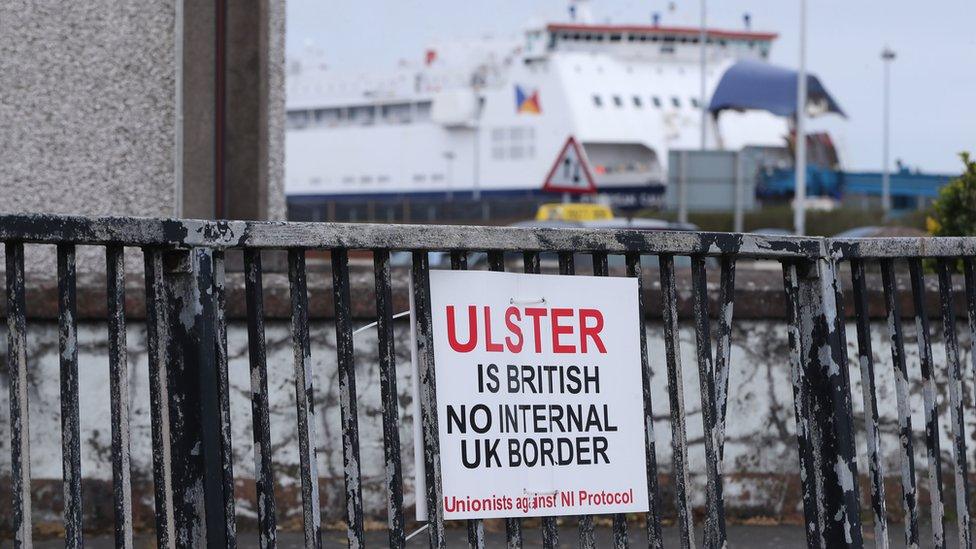
Many unionists are opposed to the Northern Ireland Protocol
There's a scene in the 1988 film comedy The Naked Gun where Detective Frank Drebin stands in front of an exploding fireworks factory waving his hands and saying: "Nothing to see here, please disperse."
At the start of 2021 that was effectively UK government policy on the Northern Ireland Protocol.
On New Year's Day at Belfast Harbour, I watched history being made as a new internal economic border began operating in the UK.
Later, the Northern Ireland secretary of state would tweet my story with his own interpretation.
Allow X content?
This article contains content provided by X. We ask for your permission before anything is loaded, as they may be using cookies and other technologies. You may want to read X’s cookie policy, external and privacy policy, external before accepting. To view this content choose ‘accept and continue’.
This position was not sustainable and the government's policy underwent a rapid evolution in the first half of 2021.
By July, Prime Minister Boris Johnson was saying the protocol was having profound economic, political, social and commercial impacts.
The DUP also began the year with an uncertain policy on the protocol.
North Antrim MP Ian Paisley made the first call in parliament for the Article 16 safeguard mechanism to be used just six days after the protocol began operating.
Grudging acceptance
Meanwhile his then party leader Arlene Foster appeared to be edging towards a position of grudging acceptance.
She told the The Andrew Marr show that her party "didn't want the protocol but it is here", adding that she would work to mitigate it and hoped the Northern Ireland Assembly would eventually use its power to vote away the provisions which create the sea border.
This policy of accommodation was challenged by the obvious difficulties businesses were having getting to grips with the new arrangements and the criticism the DUP was facing from other unionist parties.
By the end of the month, the policy had entirely collapsed, largely because of the European Commission's single biggest error in the whole Brexit process.
The commission was under huge pressure in a dispute with AstraZeneca over the provision of vaccines.
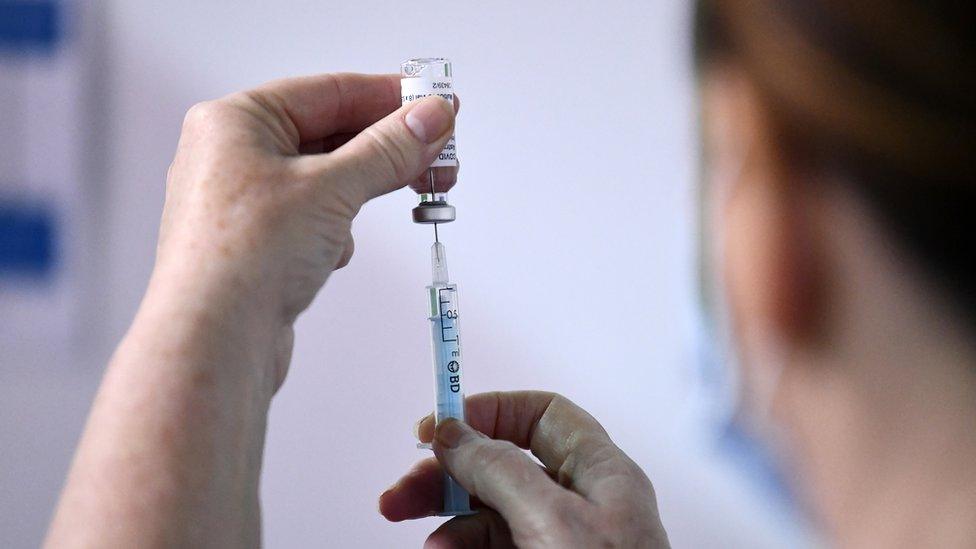
As part of a package of measures announced on a Friday night, the commission said it would use Article 16 to impose export controls on vaccines going to Northern Ireland to prevent this route acting as a backdoor into the rest of the UK.
The Irish government, which hadn't been consulted, was aghast, knowing that the move would infuriate unionism.
The damage was done
It quickly persuaded Brussels to reverse course but the damage was done.
Arlene Foster said the move was "aggressive and shameful", called on the prime minister to dump the protocol and allied with her critics to campaign against it.
Within days the political temperature was further increased in an extremely murky episode which saw council staff withdrawn from the border control post at Larne Harbour over alleged threats.
A subsequent inquiry by an assembly committee found there was "limited justification" for withdrawing the staff and "did not identify any evidence to indicate that this decision was proportionate".
Meanwhile the Westminster government was pressing the EU to take a softer line on the implementation of the protocol with cabinet minister Michael Gove asking for "grace periods" to be extended until 2023.
But the step change in government policy came in the middle of February when Mr Gove was replaced by Lord Frost as the minister with responsibility for the protocol.
Belligerent negotiations
Lord Frost is open about his view that the way to get results in negotiations with the EU is to be belligerent.
Later in the year he would lay out his view that the protocol was a bum deal and the product of weak-willed negotiating by the UK dating back to the early days of the Brexit process.
It took him less than two weeks to put his philosophy into practice by unilaterally extending the grace periods.
The EU responded by launching a legal action for what it regarded as a clear breach of the deal.
This set the tone for a scratchy few months during the spring and summer with both sides talking past each other.
This was happening against a backdrop of sporadic loyalist street violence in Northern Ireland and a crisis in the DUP which saw the party ditch two leaders in little more than a month.
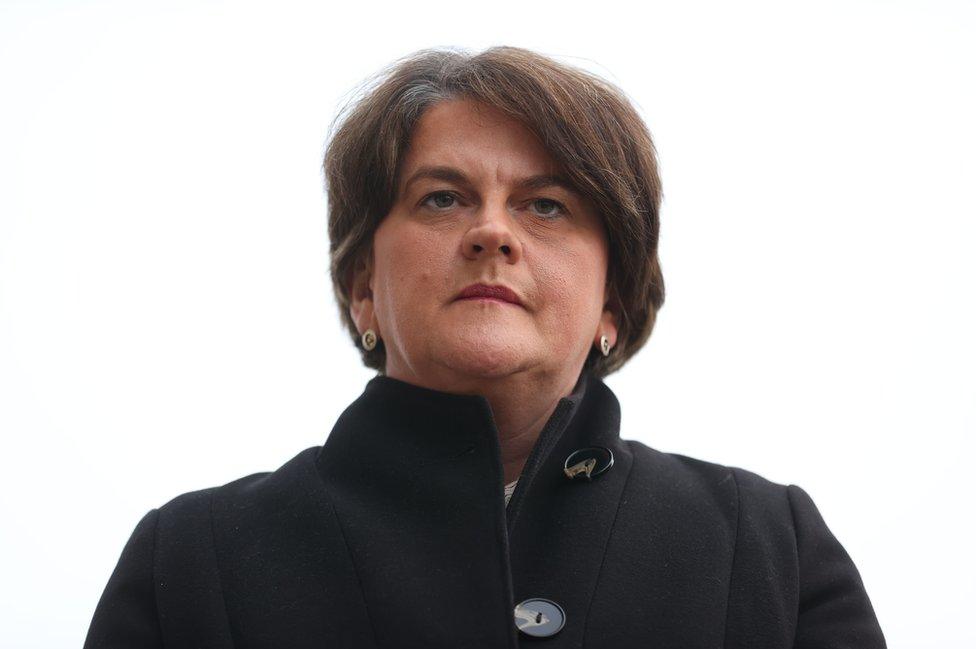
Arlene Foster was replaced as DUP leader by Edwin Poots who was replaced by Sir Jeffrey Donaldson
In July, Lord Frost published his command paper - a document setting out demands for the redrawing of the protocol.
He told the House of Lords there was a "growing sense in Northern Ireland we have not found the right balance, seen in an ongoing febrile political climate, protests and regrettable instances of occasional disorder".
Effectively it was a plan to entirely flip the logic of the protocol.
Rather than prioritising the risk that non-conforming goods from Great Britain could end up in the EU's single market or customs union, Lord Frost proposed an arrangement where the assumption would be that most goods entering Northern Ireland would be staying there.
A simple self-certification process would mean that most goods wouldn't need to be checked or subject to additional paperwork.
Medicines would be entirely removed from the scope of the protocol and the European Court of Justice (ECJ) would be removed from its oversight role.
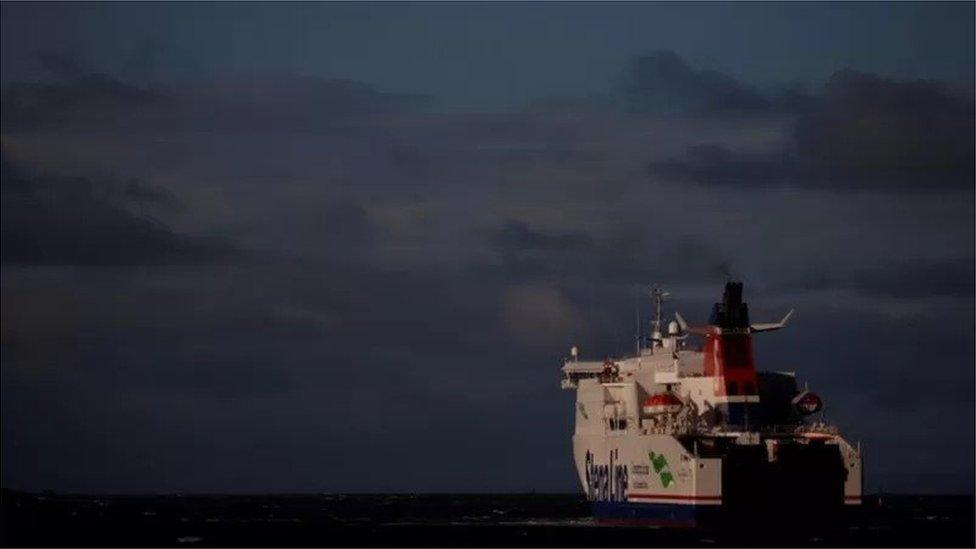
The question of an Irish Sea border has dominated talks on the protocol
Lord Frost was also clear that the threshold for using Article 16 had been reached but the UK would prefer to make changes on a negotiated, consensual basis.
The EU's response came in two parts.
First it indicated its willingness to de-escalate the situation.
At the end of July, the commission had been expected to take its legal action against the UK to the next stage. Instead, it effectively paused the case.
Then in September as the UK again unilaterally announced it was extending some of the "grace periods" the EU gave a muted reaction, merely noting the UK move.
Changing EU laws
The next step in October was to bring forward its own substantive proposals for easing the implementation of the protocol.
They included cutting customs paperwork, removing many physical checks and changing EU laws to guarantee the supply of medicines from GB to Northern Ireland.
The European Commission Vice-President Maros Šefčovič said he had listened to, and engaged with, people in Northern Ireland and the proposals were "a direct, genuine response to their concerns".
The UK was sceptical that the cuts in checks and paperwork would be as big as the EU claimed, but there was an important conceptual shift by the EU in acknowledging that goods which are staying in Northern Ireland should have fewer checks.
That opened the door to what was supposed to be a rapid and intense talks process.
It was still going in December when the EU published a new proposal which it said would guarantee that the protocol would not interfere with the supply of medicines.
It got a customarily lukewarm welcome from Lord Frost who then surprised everyone by resigning.
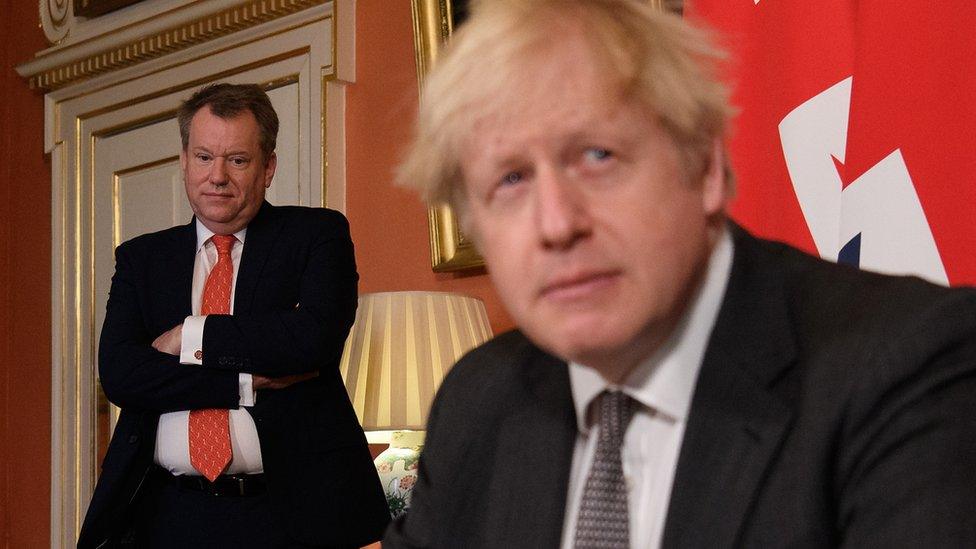
In a letter to Boris Johnson, Lord Frost said he had "concerns about the current direction of travel"
He cited differences with the government - not on Brexit but on Covid restrictions, net zero and tax.
The talks process will extend into the new year, this time with Foreign Secretary Liz Truss leading for the UK.
Throughout the talks the UK's threats to trigger Article 16 have never gone away, waxing and waning from week to week.
As the year drew to a close the threat was in a waning phase and the government was also signalling that the role of the ECJ was not the deal breaker Lord Frost once suggested.
Nonetheless there is still the possibility that Article 16 could be used within weeks.
- Published19 December 2021
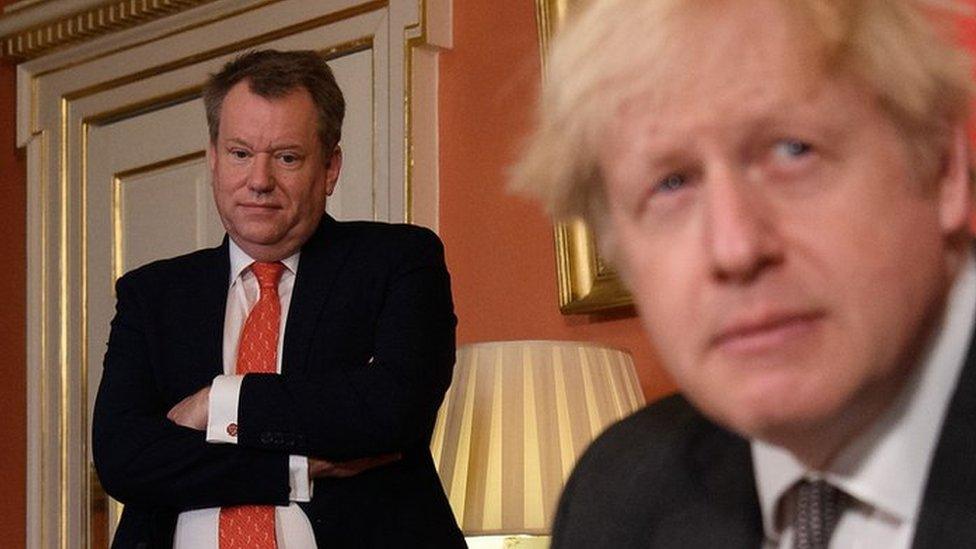
- Published2 February 2024

- Published17 May 2022
